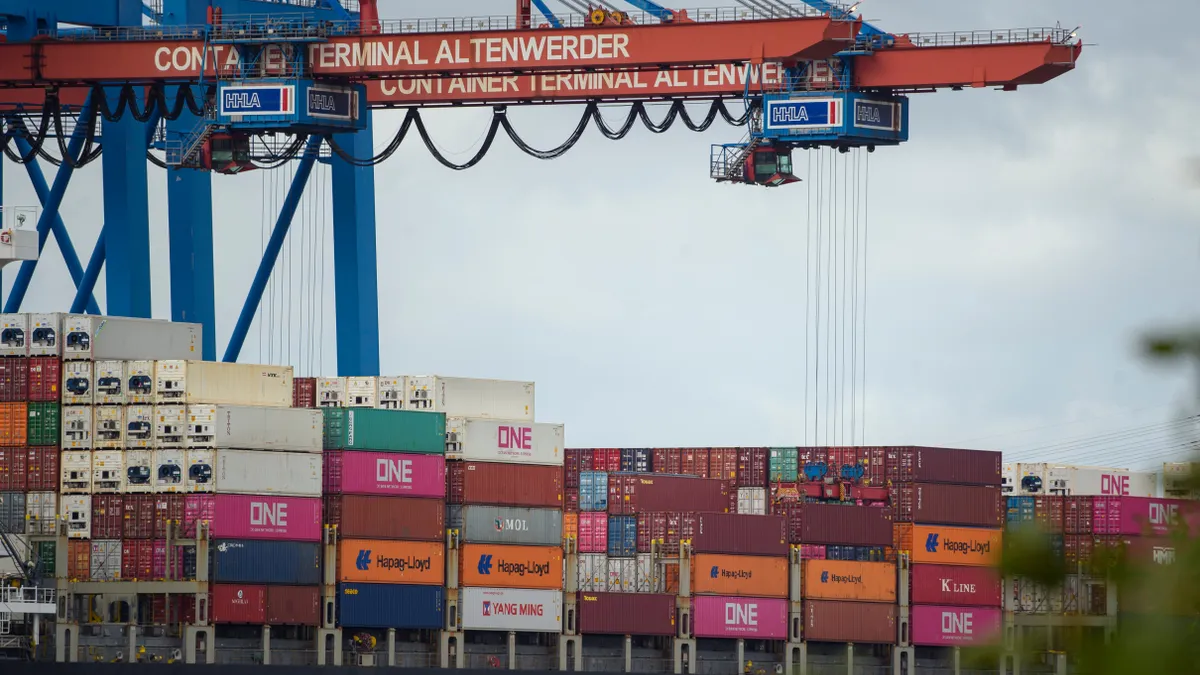Dive Brief:
- Ocean carrier reliability improved 1.7% in April to 64.2%, up 29.9% YoY, according to Sea-Intelligence’s Global Liner Performance report.
- While reliability has improved from historic lows, the strength of the improvement has weakened with each subsequent month, according to the performance report. The average delay for late vessel arrivals was at about 4.34 days compared to 6.41 days in April 2022.
- “Overall, the conclusion has to be that the global market on average has normalized,” Lars Jensen CEO and Partner at Vespucci Maritime said in a LinkedIn post. “Not with a stellar performance at just below two thirds of vessels being on-time, but this is unfortunately a level which can be said to be at the low end of the range that defines normal performance in the industry.”
Dive Insight:
Reduced congestion at ports has provided carriers an opportunity to strengthen their schedule reliability. While ocean carrier reliability has recovered from historic lows, there is still room for improvement.
Collectively, carriers are improving “but at an individual carrier level the performance is still at times quite a bit lower than seen pre-pandemic in 2019,” Jensen said.
The report covers over 60 ocean carriers and 34 trade lanes. Maersk came out as the most reliable carrier with 70.3% of schedule reliability and MSC at 68%. Maersk was at 47.5% YoY and MSC was around 30%-40%, according to the April 2022 Global Liner Performance report.
At the same time, ocean carriers have leaned on slow steaming. MSC added an additional service from the U.S. Gulf Coast to East Coast South America using slow steaming to absorb additional ships without increasing capacity, according to Green Worldwide Shipping.
“It will be interesting to see whether the move to even slower-steaming will improve reliability. Theoretically you can argue that might happen, but past history suggests otherwise,” Jensen said.














